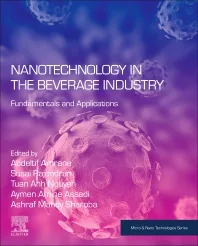Nestlé Waters North America will achieve 25% recycled plastic in its packaging by 2021
Company strives to reach 50% by 2025
Nestlé Waters North America (NWNA), Stamford, Conn., announced that it will achieve 25 percent recycled plastic across its U.S. domestic portfolio by 2021. The company plans to continue expanding its use of recycled materials in the coming years, further setting an ambition to reach 50 percent recycled plastic by 2025.
The company is expanding its relationship with key supplier, Plastrec (Joliette, Canada), and working with other suppliers, to support the company’s ability to nearly quadruple its use of food-grade recycled plastic, or rPET, in less than three years. This comes on the heels of Nestlé Waters’ announcement last month about the expansion of its partnership with CarbonLITE, as the rPET supplier builds a third U.S. facility in the Lehigh Valley area of Pennsylvania.
“We want to take the ‘single’ out of ‘single-use’ bottles. Our bottles were never meant to be thrown in the garbage — we carefully design them to be collected, recycled and repurposed,” says Fernando Mercé, president and chief executive officer of NWNA, in a statement. “PET plastic is a valuable resource that, if recycled properly, can be used to create new bottles again and again. We’re proving that it can be done by making bottles out of other bottles, not ten years from now, but today.”
In its 2016 report titled “The New Plastics Economy: Rethinking the future of plastics,” the Ellen MacArthur Foundation found that most plastic packaging is used only once, and that 95 percent of the value of plastic packaging material, worth $80-120 billion annually, is lost to the economy.
In addition to the company’s multi-year supplier agreements, NWNA continues to make indirect investments in recycling infrastructure in the United States through its $6 million investment in the Closed Loop Fund. In municipalities such as Waterbury, Conn., the investment fund is supporting enhanced recycling programs with a goal of increasing the current city recycling rate from 6 percent to 25 percent by 2020. Just recently, the Closed Loop Fund announced a $1.5 million investment in rPlanet Earth, the world’s first completely vertically integrated manufacturer of post-consumer recycled PET.
NWNA also supports recycling collection programs through organizations like Keep America Beautiful, including an integrated recycling education and awareness initiative for the 10,000 students affected by the Flint, Mich., water crisis.
“Through long-term supplier contracts and our commitment to supporting initiatives to improve collection rates, we are helping to stimulate a more robust recycling market, and unlock the potential of a circular economy here in the U.S.,” Mercé said.
Earlier this year, as a result of NWNA’s existing relationship with rPET supplier Plastrec, the company unveiled a new 100 percent rPET Nestlé Pure Life bottle.
In California, NWNA is leading the charge in its use of recycled plastic: more than 42 percent of the plastic the company uses across all brands sold in California is made from rPET, it says. In fact, all single-serve bottles of Arrowhead Brand Mountain Spring Water and Nestlé Pure Life Purified Water produced in California are made with 50 percent recycled plastic, it adds.
“The planet has a problem with plastic pollution. If plastic is going to survive as a packaging material it must demonstrate closed-loop capability,” said Mark Murray, executive director of the environmental group Californians Against Waste, in statement. “Nestlé Waters has embraced this responsibility by accelerating their use of recycled content over the next three years and their commitment to reach 50 percent by 2025. Nestlé Waters is setting the example that the rest of the beverage industry must embrace.”
This latest milestone is part of parent company Nestlé SA’s broader ambition to develop a circular economy for plastics, and to prevent packaging from ending up as litter. The global company recently announced that it has signed the New Plastics Economy Global Commitment to work collectively on solutions that address the root causes of plastics waste and pollution. BI
Looking for a reprint of this article?
From high-res PDFs to custom plaques, order your copy today!





